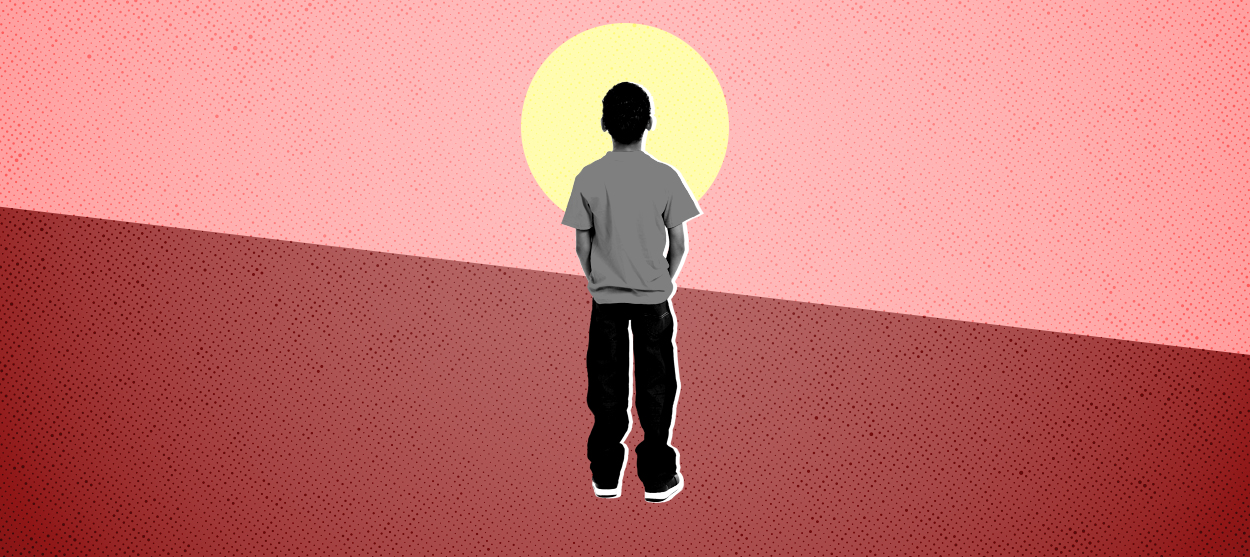Childhood after coronavirus
How will kids' lives change as society learns to function alongside a highly contagious and deadly virus?


A free daily email with the biggest news stories of the day – and the best features from TheWeek.com
You are now subscribed
Your newsletter sign-up was successful
It will be a long time before we can say we're in a post-COVID world. But as the country gradually eases out of lockdown, we're coming to grips with the fact that nothing is going to be the same as it was before — and that goes for our kids, too.
So what will childhood look like from now on? How will kids' lives change as society learns to function alongside a highly contagious and deadly virus? And what will this time do to kids' psyches?
One of the first major landscapes of change will be school. If and when school starts up again, it will look very different. Guidelines from the Centers for Disease Control and Prevention (CDC) suggest schools keep desks six feet apart, tape "physical guides" on floors to show kids where to walk, and teach and reinforce the use of face coverings. There's also a good chance that some of the home-schooling tactics parents have been employing over the last few months will endure as part of a "hybrid" education program in which kids physically attend school only a few days per week in order to reduce classroom occupancy. Virtual lessons from teachers would take place on the other days.
The Week
Escape your echo chamber. Get the facts behind the news, plus analysis from multiple perspectives.

Sign up for The Week's Free Newsletters
From our morning news briefing to a weekly Good News Newsletter, get the best of The Week delivered directly to your inbox.
From our morning news briefing to a weekly Good News Newsletter, get the best of The Week delivered directly to your inbox.
In order for this long-term hybrid learning system to work, educators will need to prioritize students' social and emotional wellbeing, suggests Justine Bruyère, a lecturer on the reading education program in the department of teaching and learning at Vanderbilt University's Peabody College. "We need to be considering how we might create communities of inquiry, which means acknowledging learning as a deeply collaborative process and being open to blended models of learning (some in person and some online) that can still allow students the chance to experience deep, wide, multidimensional learning," says Bruyère.
But licensed professional counselor Roseann Capanna-Hodge, EdD, worries a hybrid program still won't provide kids with the routine they are used to, or a high enough activity level. "Routines and structure give children the stability they need to feel calm and confident and without it, worried feelings can rise," she says.
Will the global pandemic have any permanent affects on our kids' psyches? Experts say it's really hard to tell. "Children are not really capable of the mental exercises of soul searching or self-analysis that allows for this pandemic to become a meaningful or even spiritual experience for adults," says board certified psychiatrist Dr. Margaret Seide. "It will be several years or even decades before we fully understand the impact of the coronavirus pandemic on the emotional life of children," she adds, because the effects will manifest in adulthood.
But generally, children deal well with change, Dr. Seide says, "because their lives are constantly evolving. The daily routine and privileges allowed to an 8-year-old may be dramatically different from that of a 10-year-old and school may be different from year to year. Due to that, children tend to be quite adaptive and ready to go with the flow."
A free daily email with the biggest news stories of the day – and the best features from TheWeek.com
Plus, kids often have a lot of trust in the adults around them, which means they'll follow mom and dad's leads in abiding by the new guidelines. "They are not stuck in their ways or attached to any particular routine the way adults are," Dr. Seide says. "Children absolutely have an advantage over adults in that respect."
Of course, it's normal to have some trepidations about re-entering the world, especially after being told a dangerous virus is on the loose. "For some, it will be exciting, and for others, it will be worrisome and maybe even panic-inducing," says Dr. Capanna-Hodge says. "Re-entry panic syndrome" is a real thing, she explains, and it's when someone's anxiety is so great it prevents them from resuming normal, everyday activities. This can affect children as well as adults, and "can stop them from wanting to get together with their friends or go out to public places."
Parents can help by modeling good stress management. Breathing techniques, meditation, and yoga can help to calm the brain and body and prepare kids for an open dialogue about whatever feelings are weighing on their minds. "Teaching kids to recognize and label their emotions, as well as how those emotions create physical sensations in the body, helps kids move through their stress," Dr. Capanna-Hodge says.
Want more essential commentary and analysis like this delivered straight to your inbox? Sign up for The Week's "Today's best articles" newsletter here.
Claire Gillespie is a freelance writer with bylines on Health, SELF, Refinery29, Glamour, The Washington Post, and many more. She likes to write about parenting, health, and culture. She lives in Scotland with her husband and six kids, where she uses every (rare) spare moment to work on her novel.
-
 AI surgical tools might be injuring patients
AI surgical tools might be injuring patientsUnder the Radar More than 1,300 AI-assisted medical devices have FDA approval
-
 9 products to jazz up your letters and cards
9 products to jazz up your letters and cardsThe Week Recommends Get the write stuff
-
 ‘Zero trimester’ influencers believe a healthy pregnancy is a choice
‘Zero trimester’ influencers believe a healthy pregnancy is a choiceThe Explainer Is prepping during the preconception period the answer for hopeful couples?
